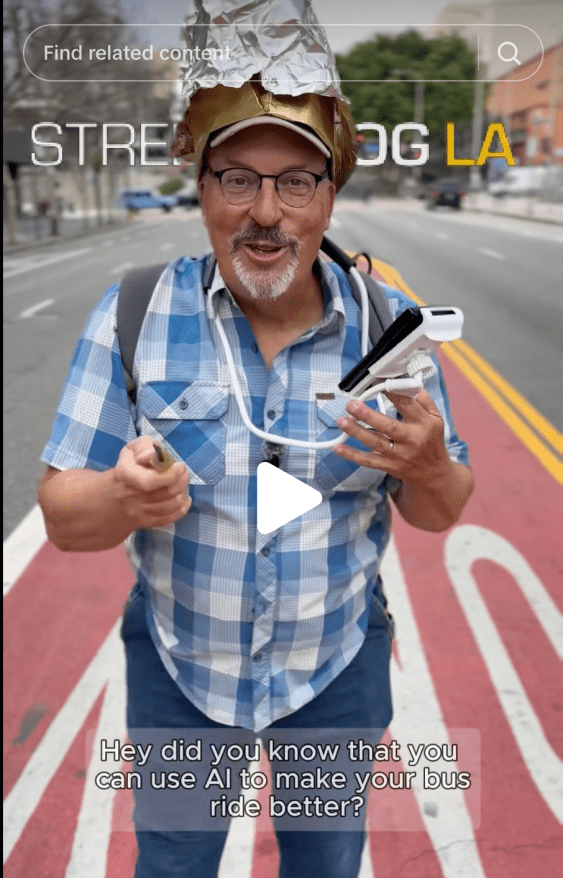 A Muni LRV crash at West Portal station last July. Flickr photo: 2Girls1Queen
A Muni LRV crash at West Portal station last July. Flickr photo: 2Girls1QueenThe Bay Area's major transit agencies are reacting with caution to news that the Obama administration will propose a federal takeover of subway and light-rail system safety regulation. Though administration officials have not yet released the proposal, Muni and Santa Clara Valley Transportation Authority (VTA) light rail systems, as well as all BART operations, would likely be included in a new oversight system.
The proposal gives states the option of either keeping their existing transit safety oversight bodies, if they meet federally crafted standards, or turning over that authority directly to the Federal Transit Administration. In California, the California Public Utilities Commission is responsible for safety oversight of railroads and light rail agencies, including Muni, VTA, and BART locally. CPUC spokesperson Susan Carothers said the agency wouldn't have a comment until the full proposal is released.
"We'll look forward to reviewing the plan and working with our elected officials on it, and the [U.S. Department of Transportation (DOT)]," said Judson True, a spokesperson for the MTA, which runs Muni. "We're going to be in close contact with our federal partners on these issues and we share their prioritization of safety. The most important thing we do is provide safe transportation."
Major light rail and subway crashes, including the Muni Metro collision at West Portal station last July, already tend to prompt investigations by the National Transportation Safety Board (NTSB). At present, however, the federal DOT cannot direct subway or light rail systems to adopt the NTSB's safety recommendations.
BART spokesperson Linton Johnson said the proposal might be an overreaction to several high profile incidents, when subway and light rail systems in fact have strong safety records. "If you look at the safety records of transit agencies and subways, they're pretty impeccable," said Johnson. "Obviously, one is too many. The number one priority of any agency I know of is safety."
BART, which hasn't had a passenger fatality as a result of a crash in its 37 years of operation, is technically a heavy rail system, not a subway or light rail. Still, it would likely be included in the new oversight proposal, which could eventually include buses as well.
Johnson also questioned a statement by Representative Jerrold Nadler, Democrat of New York and a member of the House Transportation Committee, who said that budget pressure could lead transit agencies to cut their safety budgets.
"Even in the toughest of economic times, nobody cuts back on safety," said Johnson. "It's ludicrous."
If the FTA does take a greater role in oversight, said Johnson, it should focus on inspection, not on analyzing crashes after the fact. "Quite frankly, the real way to protect passengers is to do [safety] inspection," he said.
Johnson also warned that if the FTA takes a greater role in oversight, it would come with greater responsibility, and potentially with greater liability for the federal government. "It's a double-edged sword here," said Johnson. "Obviously, the federal government has the right to come in if they want to be the overseer of safety, but realize that if they put in some sort of legislation and it doesn't work and a passenger gets killed even though the transit agency followed it, then [the FTA] better be ready to answer for it."
The CPUC and other states' transit safety oversight agencies will likely come under close scrutiny under such a proposal, and could be required to increase their staff size and implement new rules.
Jennie Loft, a spokesperson for the VTA, said the CPUC does fairly extensive inspections already. "The CPUC does a good job of oversight of light rail - they perform audits, inspections, and approve plans," Loft wrote in an email. "We don't know the details of the federal proposal, so it is difficult to provide information about it. However, the CPUC does a good job and is a model for other states."
According to Loft, that includes frequent reviews of the VTA system: every week, two representatives from the CPUC are assigned specifically to VTA property. "These utilities engineers are here every week," said Loft. "They review anything related to rail safety as well as interview VTA staff. They also attend the Rail System Review Board, which reviews VTA rail safety."
CPUC engineers also conduct occasional track and system inspections and generate reports about their findings, said Loft. Every three years, a full CPUC team comes to VTA and reviews processes, generates reports, and makes recommendations.
Tom Radulovich, a BART director for San Francisco and Executive Director of Livable City, said he's not sure how CPUC's current oversight compares to what the FTA's proposal would require, but that federal regulation comes with benefits and drawbacks.
"One thing that federal regulation of metros and light rail might do is encourage standards to converge, which would promote greater interoperability, and create a more open market for light rail and metro infrastructure in the future," Radulovich said. Existing Federal Railroad Administration (FRA) commuter and freight rail regulation has done that, he added, "and the US and Canada have a mostly interoperable network of railways."
There are serious downsides to federal regulation as well, according to Radulovich. The main issue with FRA regulation is "crash-worthiness standards that require very heavy trains," he said, a requirement that could hamper the development of high-speed rail.




